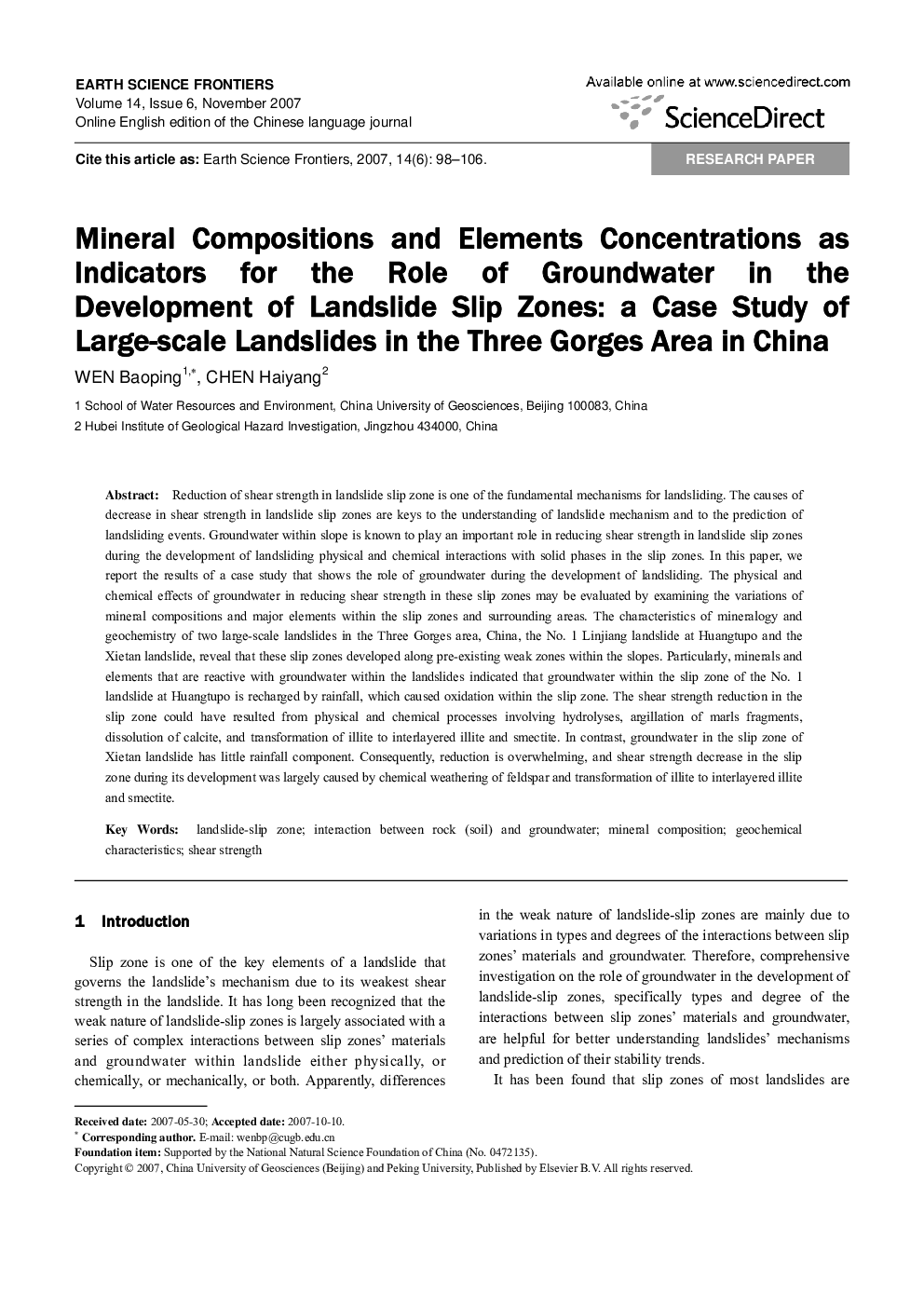| Article ID | Journal | Published Year | Pages | File Type |
|---|---|---|---|---|
| 4701575 | Earth Science Frontiers | 2007 | 9 Pages |
Reduction of shear strength in landslide slip zone is one of the fundamental mechanisms for landsliding. The causes of decrease in shear strength in landslide slip zones are keys to the understanding of landslide mechanism and to the prediction of landsliding events. Groundwater within slope is known to play an important role in reducing shear strength in landslide slip zones during the development of landsliding physical and chemical interactions with solid phases in the slip zones. In this paper, we report the results of a case study that shows the role of groundwater during the development of landsliding. The physical and chemical effects of groundwater in reducing shear strength in these slip zones may be evaluated by examining the variations of mineral compositions and major elements within the slip zones and surrounding areas. The characteristics of mineralogy and geochemistry of two large-scale landslides in the Three Gorges area, China, the No. 1 Linjiang landslide at Huangtupo and the Xietan landslide, reveal that these slip zones developed along pre-existing weak zones within the slopes. Particularly, minerals and elements that are reactive with groundwater within the landslides indicated that groundwater within the slip zone of the No. 1 landslide at Huangtupo is recharged by rainfall, which caused oxidation within the slip zone. The shear strength reduction in the slip zone could have resulted from physical and chemical processes involving hydrolyses, argillation of marls fragments, dissolution of calcite, and transformation of illite to interlayered illite and smectite. In contrast, groundwater in the slip zone of Xietan landslide has little rainfall component. Consequently, reduction is overwhelming, and shear strength decrease in the slip zone during its development was largely caused by chemical weathering of feldspar and transformation of illite to interlayered illite and smectite.
